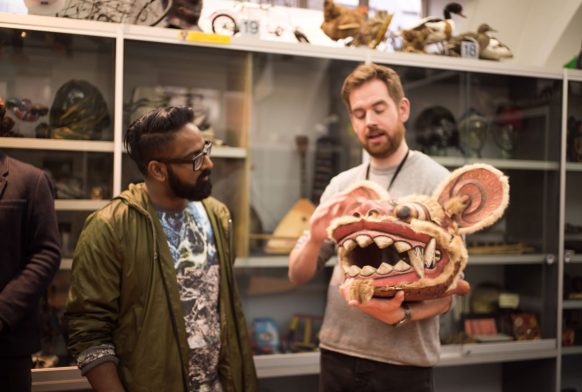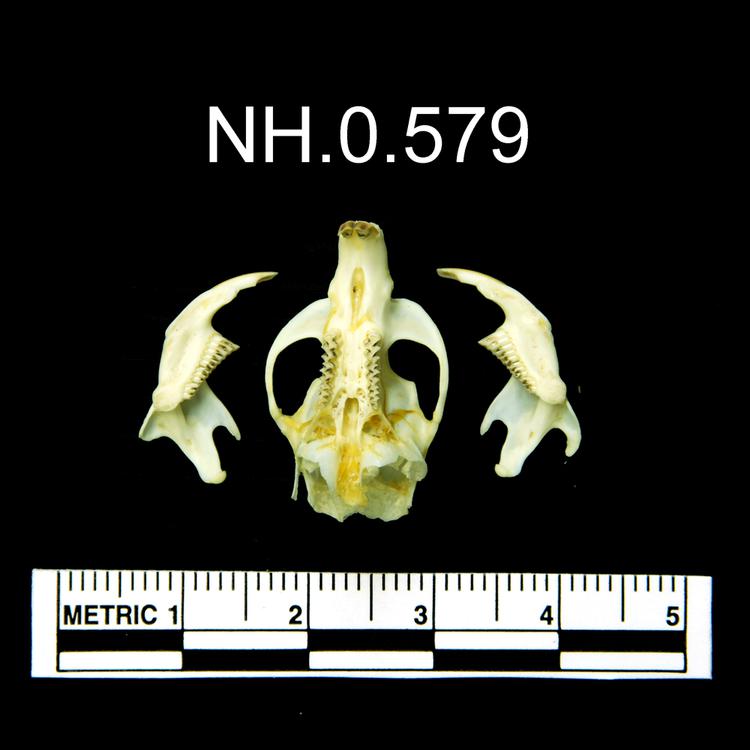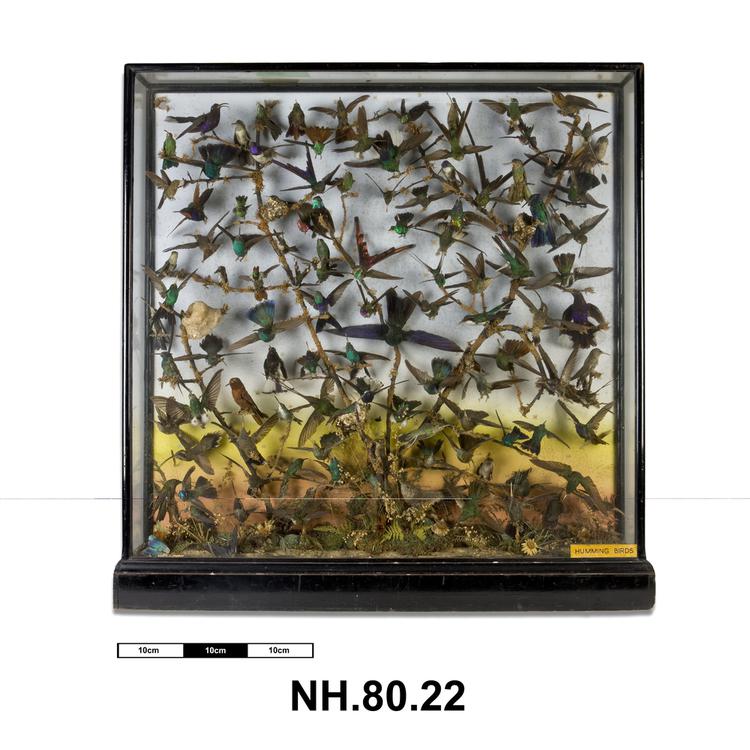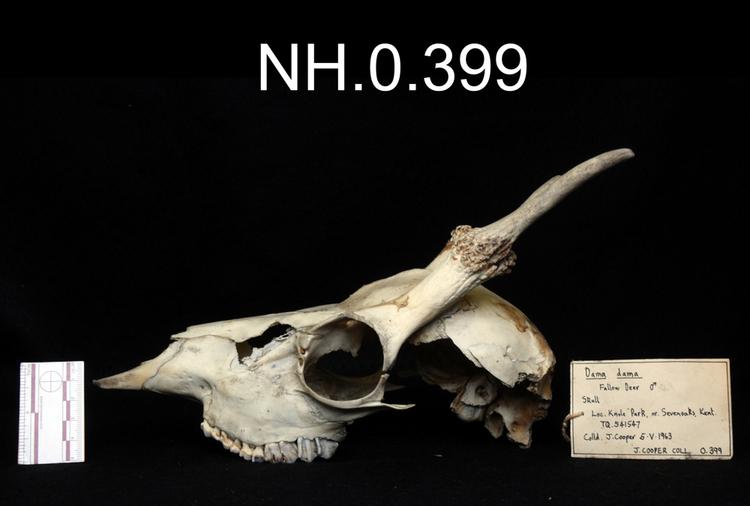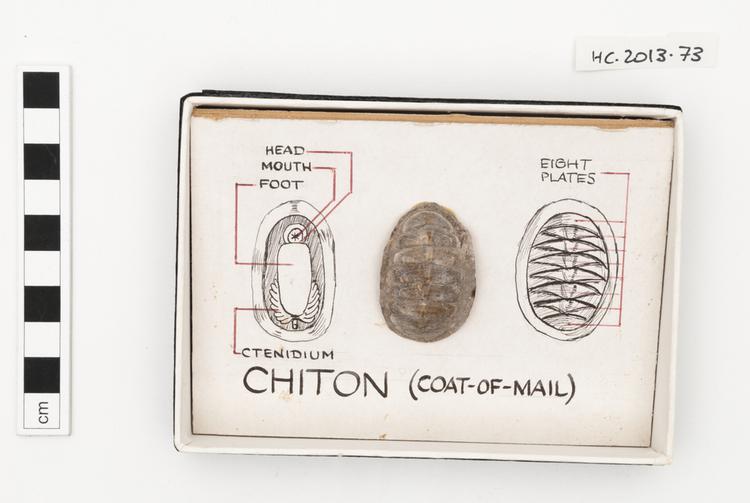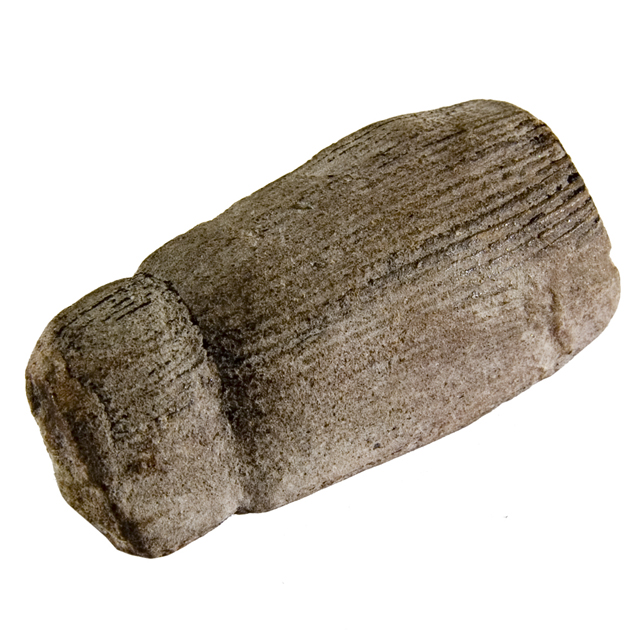
'Fossil specimen of a horsetail plant. Internal cast. Genus Equisetum (Phylum Sphenopsida)'?
Horsetail plants have been used as food. The base of the plant, root and tubers were eaten raw by the North American Indians and have been used in herbal medicine. Horsetail plants are known as 'living fossils' which means that similar plants growing on earth today are descendents of the original plants which first appeared 370 million years ago. Horsetails used to grow up to 20 metres high with a diameter of 1 metre and roots running horizontally through the ground. However today's horsetail plants are generally much smaller (although there is a South American species which is 10m tall). There are about 30 species of horsetail in the world today of which only about 8 can be found in the UK. Most fossils are of extinct species which have died out for a variety of natural reasons. Today humans are deliberately destroying many species of rainforest plants, some before they have even become known to us. This is a very unnatural form of extinction which seems to continue despite concerns being raised.
Horsetail plants are poisonous to animals if eaten in large quantities. Humans can cook and eat the roots.



